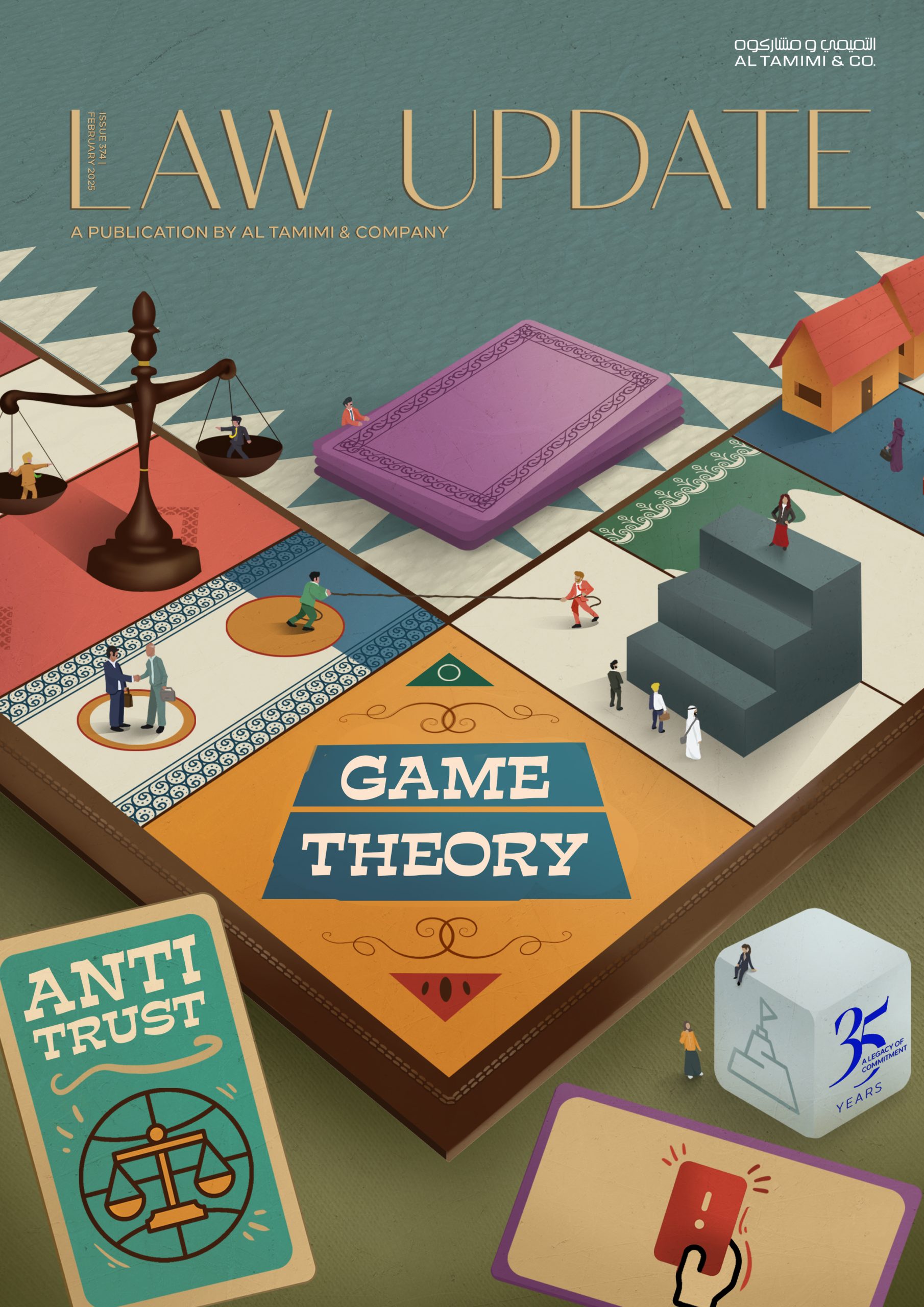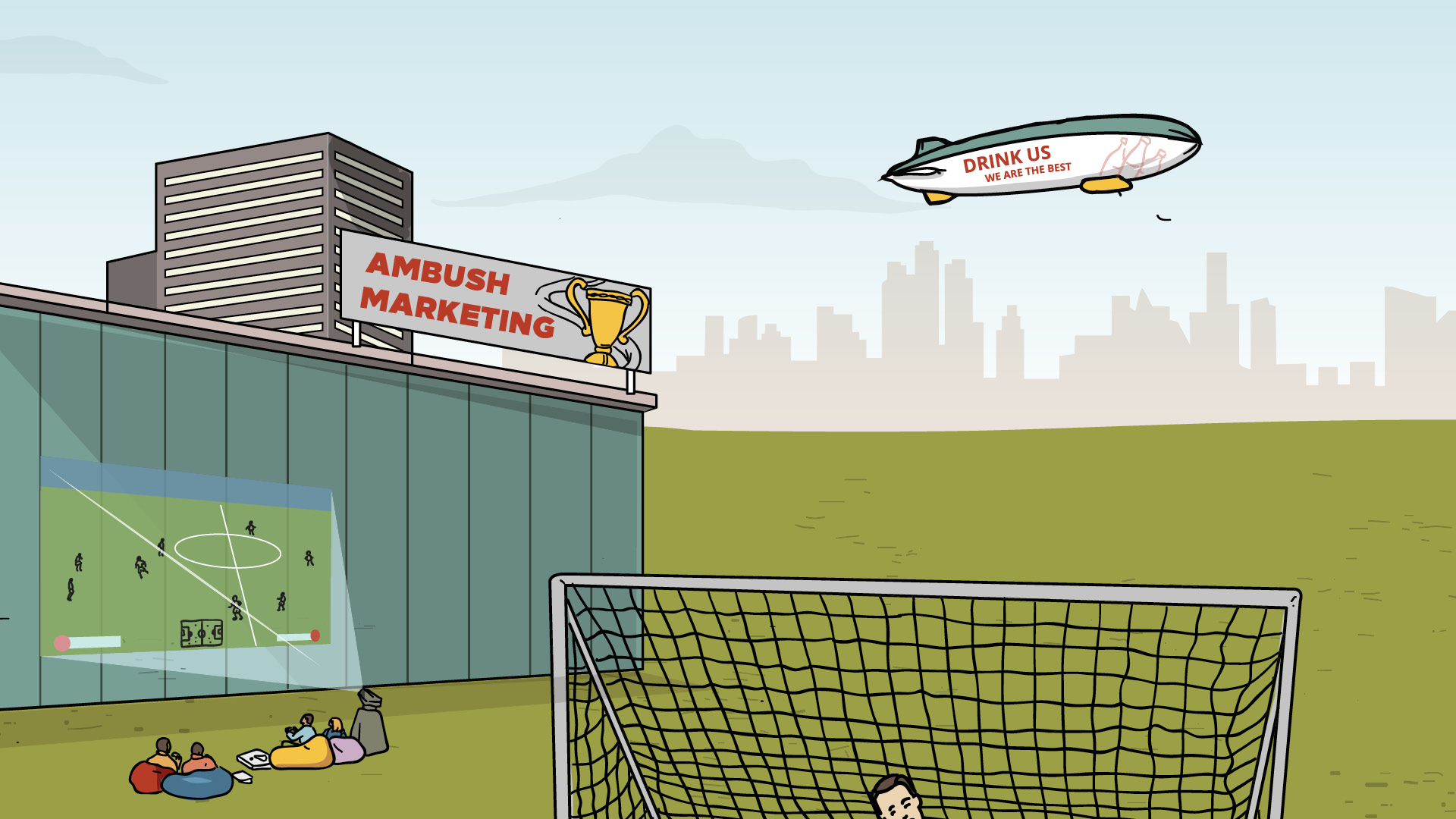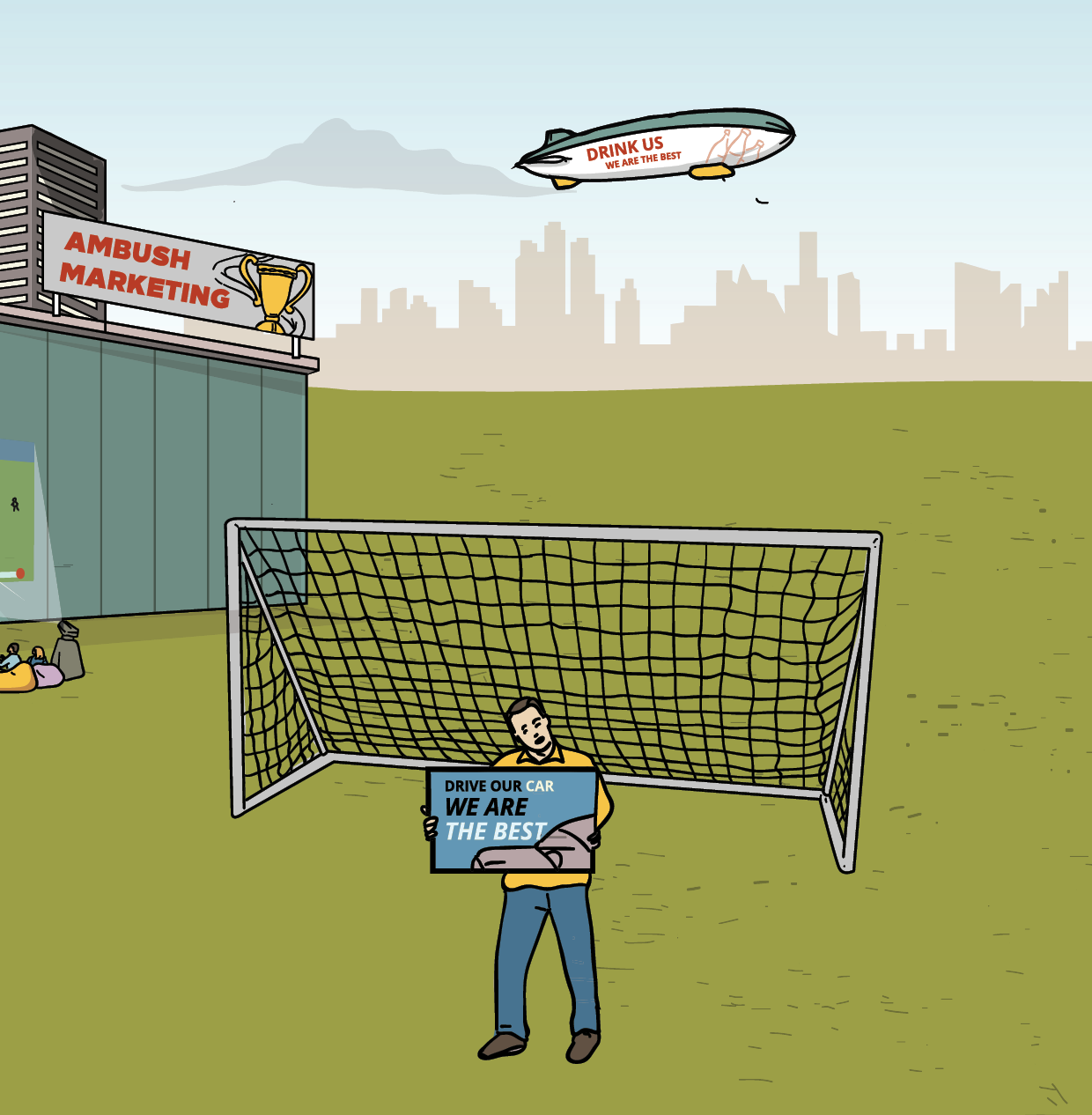- Arbitration
- Banking & Finance
- Capital Markets
- Commercial
- Competition
- Construction & Infrastructure
- Corporate / Mergers & Acquisitions
- Corporate Services
- Corporate Structuring
- Digital & Data
- Dispute Resolution
- Employment & Incentives
- Family Business & Private Wealth
- Innovation, Patents & Industrial Property (3IP)
- Insurance
Find a Lawyer
Book an appointment with us, or search the directory to find the right lawyer for you directly through the app.
Find out more
Game Theory


2025 is set to be a game-changer for the MENA region, with legal and regulatory shifts from 2024 continuing to reshape its economic landscape. Saudi Arabia, the UAE, Egypt, Iraq, Qatar, and Bahrain are all implementing groundbreaking reforms in sustainable financing, investment laws, labor regulations, and dispute resolution. As the region positions itself for deeper global integration, businesses must adapt to a rapidly evolving legal environment.
Our Eyes on 2025 publication provides essential insights and practical guidance on the key legal updates shaping the year ahead—equipping you with the knowledge to stay ahead in this dynamic market.
The leading law firm in the Middle East & North Africa region.
A complete spectrum of legal services across jurisdictions in the Middle East & North Africa.
-
Practices
- All Practices
- Banking & Finance
- Capital Markets
- Commercial
- Competition
- Construction & Infrastructure
- Corporate / Mergers & Acquisitions
- Corporate Services
- Corporate Structuring
-
Sectors
-
Country Groups
-
Client Solutions
Today's news and tomorrow's trends from around the region.
17 offices across the Middle East & North Africa.
Our Services
 Back
Back
-
Practices
- All Practices
- Banking & Finance
- Capital Markets
- Commercial
- Competition
- Construction & Infrastructure
- Corporate / Mergers & Acquisitions
- Corporate Services
- Corporate Structuring
- Digital & Data
- Dispute Resolution
- Employment & Incentives
- Family Business & Private Wealth
- Innovation, Patents & Industrial Property (3IP)
- Insurance
- Intellectual Property
- Legislative Drafting
- Private Client Services
- Private Equity
- Private Notary
- Projects
- Real Estate
- Regulatory
- Tax
- Turnaround, Restructuring & Insolvency
- White Collar Crime & Investigations
-
Sectors
-
Country Groups
-
Client Solutions

- Law Firm
- /
- Insights
- /
- Law Update
- /
- June – July 2019
- /
- Ambush Marketing and the FIFA 2022 World Cup™
Ambush Marketing and the FIFA 2022 World Cup™

N.B. The author’s original longer version on which this article is based first appeared in Intellectual Property Magazine in April 2019.
Ambush Marketing and the FIFA 2022 World Cup™
Preparations are underway and the FIFA 2022 World Cup has all the ingredients to be a tremendous socio-cultural and sporting event. It will be the first World Cup held in the Middle East and the first to be hosted by an Arab country. In keeping with the scale and scope of the event, the business of sports will also be on showcase. This means that rights holders and organisers will need a reliable legal framework within which to market, promote and deliver the event consistent with global expectations for the showpiece.
FIFA has certain expectations of a host country in relation to baseline legal requirements for rights protection and obligations necessary for its flagship tournament. These can involve certain changes to local laws in order to accommodate commercial, licensing and tax requirements, among others. While certain changes should be made to local laws to meet tournament requirements, such changes will need to be by way of agreement between the host country and FIFA, taking into account the legal traditions and current processes. Getting this balance right will result in benefits both for Qatar and for FIFA – a successful tournament as well developing an ongoing legacy for the host country.
1. Ambush Marketing: Opportunism vs Preparedness
One of the most prominent areas of concern where local legal changes are widely anticipated to prepare for the World Cup is in respect of ambush marketing. Precisely what ambush marketing is and whether or not it is contrary to the law are two questions at the heart of the short but storied history of guerilla advertising. Broadly speaking, ambush marketing is the attempt, usually by a competitor of a licenced sponsor, to: (i) associate itself or its products with a major event in a manner misleading to consumers (‘Ambush by Association’); or to (ii) interject itself or its products in close proximity to an event to gain brand exposure (‘Ambush by Intrusion’).
The aim, via clever marketing and the pushing of legal boundaries, is to create the perception (and obtain the related commercial value) of the ambushing entity being associated with the event in question. In a competitive market, this is not perceived as ‘win-win’ but rather more akin to a ‘zero-sum’ to the detriment and loss of the authorised event sponsor/licensee who has paid a substantial amount for such privilege. Not all ambush marketing is illegal. Legality will depend on the particular activity and applicable law in the relevant jurisdiction.
2. What are the Key Concerns?
The FIFA World Cup reaches a larger, more diverse audience than any other single-sport event. For the organisers of a World Cup, revenues generated from advertising make up the lion’s share of budgeted income. Staging the tournament, welcoming the world in the manner that Qatar deserves and paying for the event, are partly premised on the ability to properly market: (i) corporate sponsorship packages; (ii) broadcast rights; and (iii) merchandising opportunities.
Commercial sponsors are entitled to legal protection of their vital investments. Ambush marketing can compromise the value proposition in any one or all three of those areas. For sponsors that pay millions of dollars for a share of those rights (and in a number of cases significantly more than that in the activation of those rights) ambush marketing jeopardises that investment. Unchecked, this weakens the product the organisers are offering, dilutes the value and ultimately reduces the ability of an event to attract future sponsors.
3. What Ambush Trends can We Anticipate?
We have seen a continuing trend for opportunistic and creative advertisers to attempt to exploit major events. There remains no broadcast market with the pull to attract viewership like live sports. For example, in the US market alone, the recent furore over the final season of the HBO series Game of Thrones reached a fever pitch with many millions tuning in for the final episode; however, it was noted that if viewership for that episode were compared to viewership for regular season NFL games, it would not have placed in the top 70!
The level of fairness required of competitors on the pitch will not necessarily be observed by advertisers off it. Some of the world’s premier brands have done battle via ambush. The stakes are high and the potential for global exposure has been a temptation many advertisers, including a number of market heavyweights from the soft drinks market to sportswear manufacturers and electronics giants cannot seem to resist. There is no reason to suggest this will not continue.
4. What does a Solution Look Like?
Comprehensive changes based on the enactment of enabling laws in respect of government guarantees, customs requirements and taxation have not yet been fully implemented. It is expected these processes are underway and will be agreed between Qatar and FIFA and duly rolled out within an appropriate time period prior to the 2022 tournament. While the precise description of these new laws is not yet clear, it is likely that in respect of ambush marketing, the legal approach and position will be similar to that of previous World Cups. FIFA is adept at taking on ambush marketers. It has published an exhaustive and strict code of what it considers to be unacceptable marketing practices surrounding its event and the list is far-reaching. Fundamentally, any marketing practice, which draws a commercial association with the FIFA World Cup is banned unless it has FIFA’s authorisation.
A rights holder’s options in pursuing an ambush marketer depends on the law in the country in which the ambush takes place. While FIFA will work with Qatar’s Supreme Committee for Delivery and Legacy to ensure appropriate statutory provisions are promulgated, sponsors should take proactive steps to protect their substantial investment by ensuring they are ready. Readiness should include:
- implementing full trademark protection in respect of the relevant goods and services;
- entering into a comprehensive sponsorship agreement;
- ensuring prominent trademark and copyright notices are placed on all official merchandise and hoardings;
- choosing whether or not to adopt a zero tolerance approach by being vigilant and ensuring swift and decisive action against all infringers; and
- considering adding non-legal alternative strategies (such as a publicity campaign designed to identify and endorse official sponsors) where they can be useful.
The attainment of a mutually beneficial solution will take strong coordination as well as a unified strategy and a strong understanding of existing Qatari law but can be achieved subject to the necessary research and analysis being undertaken in order to understand the laws that may need to be enacted or changed to host the tournament. South Africa enacted a law to enable speedy trials in special courts in respect of crimes committed by fans; Brazil enacted legislation to accommodate FIFA requirements; and Russia, the 2018 hosts, also made changes to its laws in connection with the World Cup.
5. Tips to Achieve Robust Preparedness
Tried & Tested. Event-specific local legislation protecting sponsors is now commonplace – even mandatory in the case of any Olympic host nation. FIFA is amongst the best and most effective bodies at protecting sponsors’ rights. Incremental improvements in such laws are made before each new mega-competition and consideration should be given to preparing the best possible statutory solution for Qatar, accounting not only for the event but also for Qatar’s unique cultural and legal environment. Lessons learned from experiences in South Africa, Brazil and Russia should be adopted; and, an eye should be kept on opportunities to incorporate effective developments in law and to account for market trends.
Home-field advantage. Qatar has a useful existing framework of legal and regulatory traditions that can provide an additional opportunity for protection. Advertising regulations typically require approval and permit protocols, such that Ministerial and/or municipal approval in advance of displayed promotional signage. This administrative approach establishes an ‘ask-first’ rather than an ‘apologize-later’ dynamic, which imposes a positive obligation on potential infringers to secure prior approval. The 2022 bid process capitalised on the compact World Cup (the close proximity of playing venues will make Qatar 2022 one of the most geographically compact FIFA World Cups ever). This means exclusion zones could be policed very effectively to combat Ambush by Intrusion. In respect of Ambush by Association, elements of laws concerning Intellectual Property including new event-specific legislation, consumer protection and the Civil Code (for tort and contract-based remedies) can all be used to defend against guerilla tactics.
6. Beyond 2022: Parallel Developments, Building a Coherent Legal Strategy
Qatar has historically held a positive outlook and recognition of intellectual property rights and has recently invested significant resources in promoting the development of a knowledge economy. Such steps notably include Qatar’s reinforcement of its IP protection regime through the provision of a stronger legal basis for protection and enforcement, in addition to improving and organising IP administrative filing systems and amending the Consumer Protection law to combat counterfeit goods.
The process of facilitating and promulgating enabling legislation should be well under way in Qatar to effect changes to laws and standards for the World Cup. Qatar, in conjunction with FIFA, should ensure the best possible legal framework to deter ambush marketing is in place well before 2022. Effectiveness suggests this needs to be complemented by a flexible and dynamic ability to enforce that framework of legal rights and restrictions to maximise sponsor value as well as protecting the short- and long-term value of the event, whilst taking into account the requirements of internal and external stakeholders to set the table for a successful tournament for FIFA and the host nation as well leaving a meaningful legacy for improved intellectual property protection.
Al Tamimi & Company’s Sports & Events Management team regularly advises on a wide array of national, regional and global Events. For further information please contact Steve Bainbridge (s.bainbridge@tamimi.com).
Stay updated
To learn more about our services and get the latest legal insights from across the Middle East and North Africa region, click on the link below.


